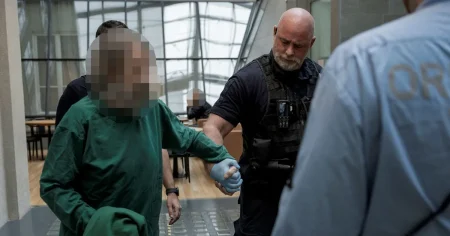Malmö, a city grappling with a surge in gang-related violence and the tragic death of a 15-year-old boy on New Year’s Eve, has been investing in numerous crime prevention initiatives, both directly and through financial support of non-profit organizations. These initiatives are primarily aimed at reaching vulnerable children and young people at risk of being recruited into criminal gangs. Ironically, amidst these efforts, a significant internal issue has unfolded, exposing corruption within one of the city’s own youth programs. A high-ranking official in a city-run program targeting at-risk youth aged 12-21 has been dismissed for gross misconduct following an extensive internal investigation.
The investigation, triggered by an anonymous tip detailing ”deficiencies and irregularities” in the official’s conduct, uncovered a series of serious breaches of trust. The official, a seasoned professional with extensive experience in youth crime prevention, oversaw a team of approximately fifteen employees. Malmö city meticulously scrutinized the official’s computer, payroll records, overtime compensation, recruitment practices, use of company cars and credit cards, mileage logs, and management of the program’s petty cash. The findings painted a picture of deliberate and systematic abuse of the official’s position for personal gain.
The investigation revealed a complex web of deceitful activities. The official was found to have falsely reported working hours, drawing a salary from Malmö city while simultaneously receiving payment from another municipality in Skåne where they held concurrent employment. Furthermore, the official hired an unqualified individual with whom they had a personal relationship, bypassing standard recruitment procedures and potentially compromising the integrity of the program. The investigation also unearthed instances of unauthorized overtime approvals, a practice facilitated in collusion with a subordinate, a coordinator, with whom the official also maintained a personal relationship, creating a conflict of interest and raising concerns about favoritism within the program.
The extent of the official’s misconduct extended beyond financial impropriety. The investigation revealed unauthorized use of Malmö city’s official vehicles for both personal errands and commutes to the second job in another municipality, including 77 documented instances of misuse during vacations and periods of leave, often accompanied by the exploitation of the city’s parking app. This blatant disregard for city regulations demonstrates a significant breach of trust and raises questions about the official’s overall judgment and integrity. Malmö city representatives have expressed their inability to comprehend the motivations behind the official’s actions, highlighting the bewilderment and disappointment surrounding the situation.
The repercussions of the scandal are still unfolding. While the official in question has been terminated, the investigation into the complicit coordinator, currently suspended from their duties, remains ongoing. The city has yet to decide on filing a police report or pursuing legal action to recoup the misappropriated funds related to unauthorized overtime payments. Therése Wihlborg, the unit manager, explained that such decisions are pending the completion of the ongoing investigation, emphasizing the city’s commitment to a thorough and just process.
In the wake of this incident, Malmö city is committed to strengthening its internal controls to prevent similar occurrences in the future. The administration plans to conduct a comprehensive evaluation of the incident to identify systemic vulnerabilities and implement measures to enhance the early detection and effective management of irregularities. This commitment to reform underscores the city’s determination to maintain the integrity of its publicly funded programs, particularly those aimed at supporting vulnerable youth, ensuring that such critical resources are utilized responsibly and effectively. The scandal serves as a stark reminder of the importance of robust oversight and accountability within public institutions, particularly in sensitive areas like youth crime prevention where trust and transparency are paramount.














